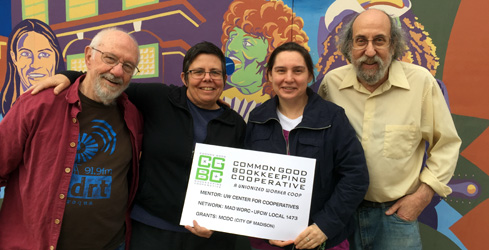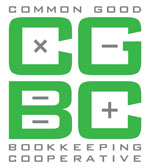
A cooperative (co-op) is a business that is owned and controlled by its members, each of whom shares both the business risks and the rewards.
In addition, co-ops are democratically controlled through voting rights that come with membership. In Wisconsin, each member is entitled to one vote.
Often times a cooperative is organized in response to a specific need. In our case, Common Good Bookkeeping Cooperative was formed to meet a demand for stable and affordable financial and administrative services in the Madison, Wis. community while offering our members more stability and consistency with workflows.
Unlike other businesses, a co-op is operated to benefit its members, not to maximize profits for outside investors. This can help diversify and strengthen the local economy, as the money made returns to the members who live in the community. Plus, co-ops are a source of local employment.
Cooperative Principles
- Voluntary and Open Membership
- Democratic Member Control
- Member Economic Participation
- Autonomy and Independence
- Education, Training, and Information
- Cooperation among Cooperatives
- Concern for Community
